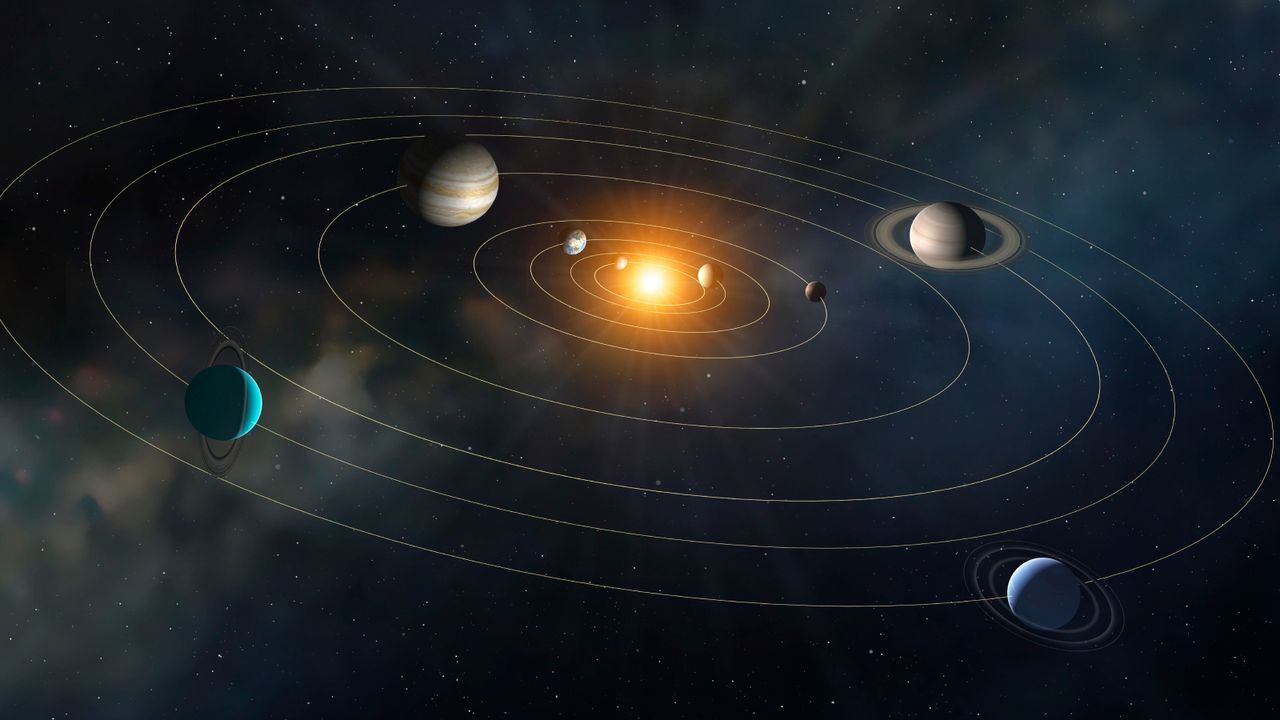
About 4.6 billion years ago, a celestial cloud collapsed, paving the way for our solar system to form. Then, a nebula with strong gravitational pull took shape, kick-starting the birth of the sun. But after that, the details leave more room for debate about which planets formed first.
So, what do we know about which planets emerged early, and which ones developed later on?
“It’s complex — there are no easy answers to measuring time in outer space,” Michael Meyer, chair of the University of Michigan’s astronomy department, told Live Science. “It is the most difficult thing to do in astronomy.”
The most commonly accepted explanation for how our solar system’s eight planets formed is called accretion — when small particles of gas and dust collide and stick to each other, allowing them to gain gravitational pull and grow over time.
One popular theory, which assumes accretion took place, is that the large planets started to form first, far from the sun, according to NASA. As they got bigger, they moved outward, making room for the terrestrial, rocky planets to form. These formations took place closer to the sun and millions of years later (a relatively short time span in astronomical terms).
“In order to form a gas giant planet, you have to have enough gas to make a Jupiter — and that gives us a hard upper limit for how long it can take to form a gas giant,” Meyer said. “If you don’t get the whole process started fast enough and the gas goes away, then you can’t make a gas giant. That’s why we think the gas giants formed first.”
But a competing theory, called the streaming instability model, offers a different explanation. By allowing planets to gather mass more spontaneously, this theory could allow an entirely different sequence to take place.
“I would argue that maybe the terrestrial planets formed first and then the giant planets just stopped forming when there was no more gas,” Cauê Borlina, an assistant professor of planetary science at Purdue University, told Live Science. “After that, it just becomes this chaotic buildup.”
Determining a planet’s age
Scientists are still debating which theory best explains the solar system’s formation. But even the way they think about the age of a planet isn’t straightforward.
“There are two different ways of thinking about the age of a planet,” Gaia Stucky de Quay, a planetary scientist at MIT, told Live Science. Instead of dating a planet based on its provenance, some scientists focus their attention on its surface.
“The way I think about ages is more the age of the surface, because surfaces can be really old, like a preserved surface, or surfaces can be really young if stuff is still happening” like active plate tectonics, Stucky de Quay said.
One method scientists use to determine a planet’s age is to manually count the craters on its surface. From this perspective, Earth could be considered the youngest planet, as its surface changes continuously, with Venus and Mars coming next, she said.
Unfortunately, the limitations of current planetary dating methods mean that scientists can only estimate how old each planet is. And because even a small margin of error can amount to millions of years in the history of the universe, researchers are still working to gather data to piece together a more precise timeline.
“If we ever want to try to get this full picture of how and when planets form, I think samples are a crucial part of that,” Borlina said. “And some places are a little bit harder than ours to get samples from, but we have samples sitting on Mars right now just waiting for us to bring them back.”


2 Comments
https://shorturl.fm/mmp3R
https://shorturl.fm/hWfGI